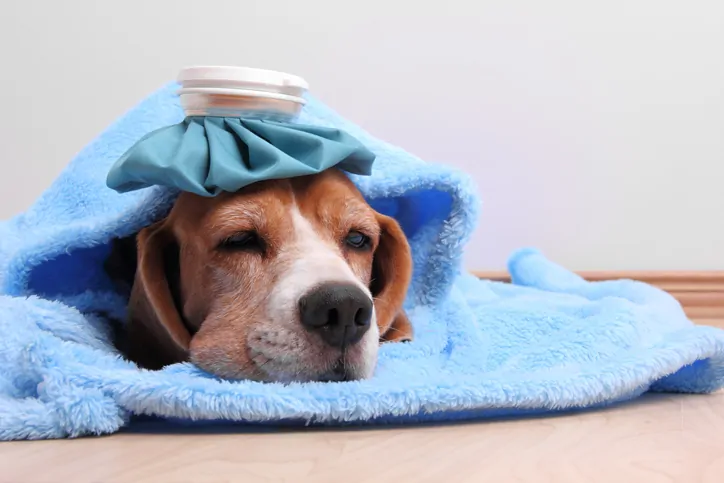Diarrhea in dogs can be caused by anything, including eating garbage, food intolerance, parasites and stress along with certain viruses and bacteria.
The course of treatment is determined by the cause of your dog's diarrhea but may consist of an anti-diarrheal agent, fasting, bland food, and probiotics.
Follow all veterinarian instructions, especially pertaining to the proper diet. At-home treatments include fasting, boiled chicken with white rice (bland diet), bone broth, probiotics, and fiber supplements.
Dealing with diarrhea in dogs is not only a nasty business but it's also a common problem most pet caregivers face. Diarrhea varies in severity, duration, and frequency from breed to breed. While canine diarrhea isn't always preventable, there are ways to decrease the incidence of this unpleasant condition in your furry friend. .

Diarrhea is characterized by the faster transit of feces through the intestines combined with a reduction in the absorption of water, minerals, and electrolytes. When diarrhea is a dog's primary symptom of illness, it may be caused by a very straightforward issue, such as an intestinal infection brought on by bacteria, coccidia, or intestinal worms such as hookworms, roundworms, or whipworms.
A change in diet or dietary misconduct (eating trash or other irritating foods) is a frequent cause of acute diarrhea in dogs. Acute diarrhea can also be brought on by stress, particularly after traveling, boarding, or experiencing other environmental changes. Other causes of diarrhea in dogs include:
When your dog has diarrhea, most of the water they drink is passed through the body instead of absorbed by the intestines. This causes gradual dehydration that can cause electrolyte imbalances and put a strain on the kidneys resulting in organ failure. Seek veterinary care if your pet exhibits the following symptoms:
If diarrhea doesn't resolve within 48 to 72 hours, you should seek veterinary care for your pup.
When you take your dog to the veterinary hospital, the first thing your vet may want to do is diagnose the cause of their diarrhea symptoms. Your vet will test your pup's stool for intestinal parasites, Giardia, and certain kinds of bacteria. Blood might be taken to catch signs of metabolic disease, protein loss, anemia, inflammation, and other conditions. Other tests including CPL tests, radiographs, and ultrasound may be necessary.
Your dog's diarrhea treatment plan is dependent on the results of their tests. Parasites can be treated with dewormer. Bacteria populations may be managed with probiotics. Anti-diarrheal agents and food restrictions may be prescribed to reset your dog's gut. If your dog does not respond to initial treatment within 48 to 72 hours then more tests and new treatments may be needed.
Canine diarrhea resolves on its own in a day or two. In most circumstances, there is no cause for concern because many dogs with diarrhea act and feel fine. A short fast (12 to 24 hours) followed by a bland diet is all that is needed to stop diarrhea in dogs, but, young puppies should not fast. Some home-care remedies for doggy diarrhea are:
Once you find a recovery diet that agrees with your dog, you can increase their portions over the course of a few days. Dogs with uncomplicated diarrhea usually make a full recovery, but those with chronic diarrhea may need long-term medication or nutritional therapy to keep their diarrhea issues under control.
Phone: (855) 461-8259
Email: [email protected]